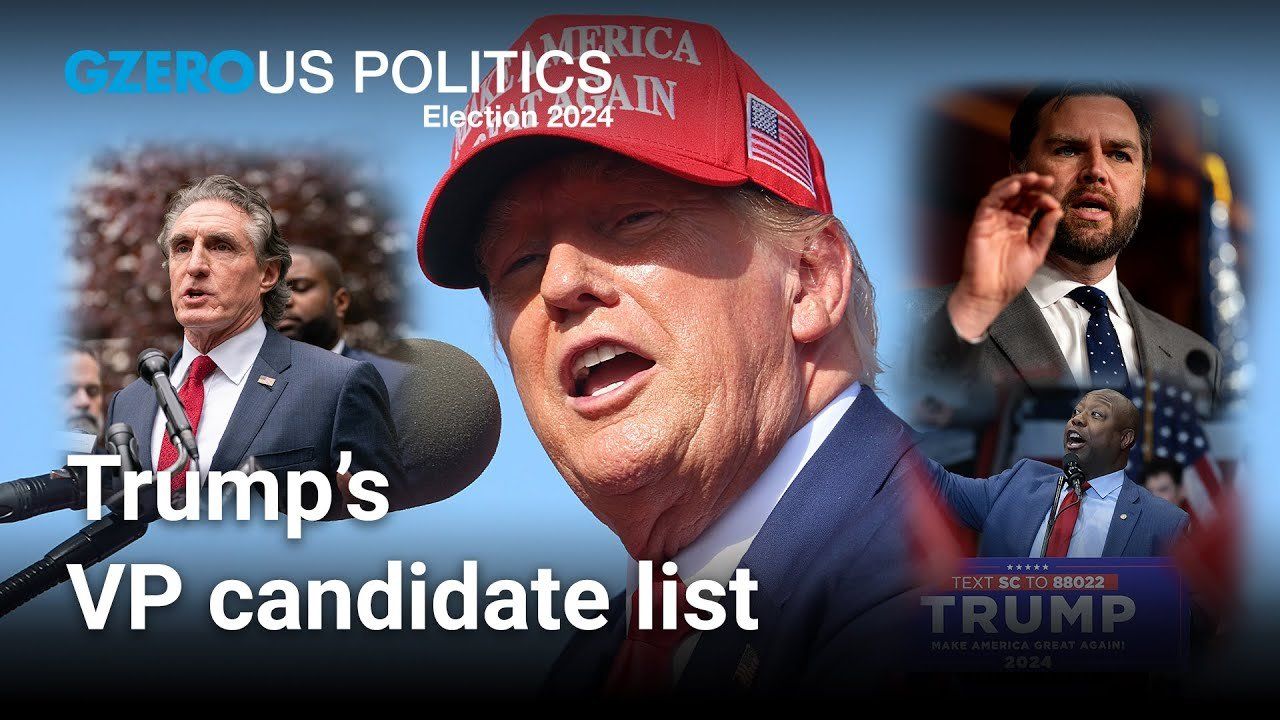US Politics In 60 Seconds
Trump's VP pick: The short list

What is Trump looking for in a running mate? | US Politics

Jon Lieber, Eurasia Group's head of research and managing director for the firm's coverage of United States political and policy developments, shares his perspective on US politics from Washington, DC.
What we're watching in US Politics this month. Who Trump picks as his VP.
The big story in US politics this month is going to be the debates which are going to be one of the key moments of the campaign, given the enormous downside risk they present for President Biden due to his age. But the other big event of the summer, other than the conventions, is going to be who Trump picks for his vice presidential candidate. And there's been a number of names floated by the campaign, some more conventional than others. And they each have their own set of strengths.
Some of the more surprising names would be JD Vance, who Trump's family is allegedly pushing for him to pick. Vance is a senator from Ohio and one of the leading lights in the populous Republican movement. Never mind his Yale and venture capital background, he is somebody that claims he's out there fighting for the working class, which could help Trump.
Tim Scott, an African-American senator from South Carolina would help bring diversity to the ticket. Perhaps match up well against Kamala Harris in the debates, and is a pretty telegenic defender of Trump who has been outspoken in his praise for the former president since he was defeated in the primary.
Another potential candidate is Doug Burgum, the governor of North Dakota, a smaller state. But he's a rich man, a successful business guy who's been a very effective Trump surrogate. And he's emerged as a potential pick in the last few months.
You also have a handful of other senators, like Marco Rubio from Florida, who would put a Hispanic on the ticket, or Tom Cotton, who's been a harsh Trump critic in the past, but would bring a lot of national security credibility to President Trump. There's a couple of House members that are on the short list, unclear if they have the experience or TV presence to be what Trump is looking for.
Typically candidates will choose a vice president based on some political liability that they think they have, whether it's the balance of the ticket in terms of age or gender or racial identity or maybe it's a regional thing. Mike Pence was chosen because he was strong with evangelical voters and Trump was not. It isn't exactly clear what Trump's going for with his VP pick. Probably it's somebody who he thinks is loyal to him, somebody that can defend him well on TV, and probably someone that's not going to show him up too much as an actual vice president. Really any one of the names on this list could achieve those goals, now but what they probably won't do is give Trump a big boost in this campaign, which is going to be about the two headliners, Joe Biden and Donald Trump.
Will AI change the balance of power in the world? At the 2026 World Economic Forum in Davos, Ian Bremmer addresses how artificial intelligence could redefine global politics, human behavior, and societal stability.
Ian Bremmer sits down with Finland’s President Alexander Stubb and the IMF’s Kristalina Georgieva on the sidelines of the World Economic Forum to discuss President Trump’s Greenland threats, the state of the global economy, and the future of the transatlantic relationship.
GZERO World heads to the World Economic Forum in Davos, where Ian Bremmer lookst at how President Trump’s second term is rattling Europe, reshaping both transatlantic relations and the global economy, with Finland’s President Alexander Stubb and the IMF’s Kristalina Georgieva.